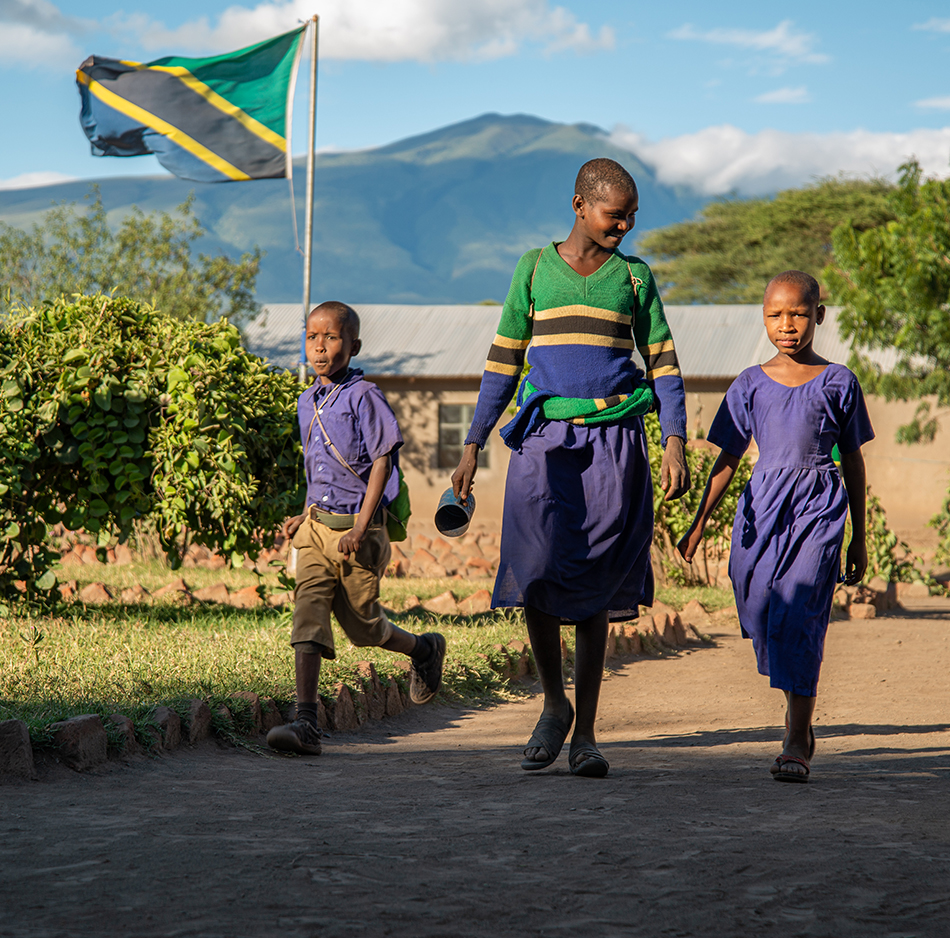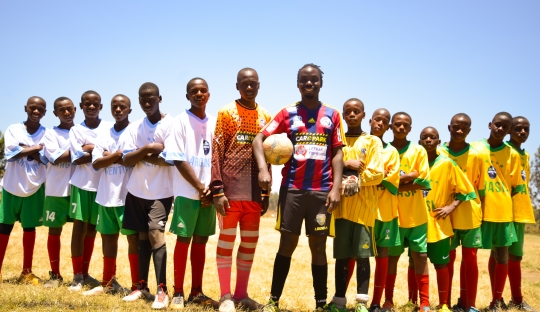Maria leads the way for a big change
For thousands of years, the Hadzabe have called the Ngorongoro Conservation Area, a national park famous for its abundance of African wildlife, their home. This nomadic tribe of about a thousand people roams freely here. Wearing sandals made of rubber from old tires, they spend hours each day in the scorching sun searching for their next meal. They live one day at a time, with no thought about what the next day may bring.
The Hadzabe can be distinguished from other tribes by the clicking sounds they make when they communicate. Also, the men always have bows and arrows in their hands, and the women are adorned with colorful beads hanging on their animal skin clothing.
Living in grass huts, members of the tribe wake up in the morning, light a fire then gather around it. They then divide the tasks of the day. The men tighten their bows, sharpen their arrows and dip them in poison, preparing to spend the day hunting. The women pick up their baskets and make their way through the brush to search for fruit and roots.
Maria says, “We have been living side by side with wild animals for generations. We hunt what they hunt and eat what they eat. We do not farm or keep livestock.” She continues, “When we return at the end of the day, we come together and share what we have collected. We eat everything; nothing is left for the next day.”
Children at Risk
Like the tribe’s other children, Maria’s son and daughter, Emmanuel and Tude, stay at home when the adults go out searching for food. Maria explains, “The more hunters and gatherers we have, the better our chances of finding sufficient food. For every person who stays behind, there is less food.”
With only one adult staying behind with the children during the day, they are in serious danger of falling prey to wild animals. “This is our way of life,” says Maria. “But as a mother with such young kids, I always worry about their safety.”
The Hadzabe way of life also means that no one in Maria’s family has ever stepped foot in a classroom. Between the tribe’s constant migration within the Ngorongoro Conservation Area and the fact that the essentials for survival are met by nature, they believe there is no need for education. But Maria now desires something different for her children.
Paving the Way for Change
When a church and its Compassion center opened in 2017 in Olpiro, a village near where the Hadzabe tribe had temporarily settled, one of the leadership’s first goals was to meet the need for education. “The community around us placed no value on education, not only the Hadzabe, but other tribes as well,” says Center Director Bruno Innocent. “We knew it was not going to be an easy task changing a tradition that has stood for years. But we were determined.” He continues, “The first thing we did after registering children into the Compassion program was to urge their parents to establish a permanent settlement.”
Tude and Emmanuel, ages 5 and 2 at the time, were both registered into the program when it opened. Today, Tude is in first grade, and Emmanuel will start school next year. Because the Hadzabe do not use money, the center pays for the children’s school fees, uniforms and school supplies.
“I never had a chance to go to school,” Maria says. “But I would like my children to experience what I never did. Going to school not only gives them an education, it is also a safe place for them. I do not have to worry about a wild animal attacking my children during the day when I am out gathering food.”
To give her children stability in their education, Maria and other parents making the same decision have settled permanently in the area. She says, “Even though it means we have to go farther to find food, we know our children are safe and they are getting an education. And sometimes, when we don’t find enough food, the center provides it for us.”
Of course, change does not happen in a day. But for the first time in Maria’s family, someone is going to school.


_medium.jpg)
